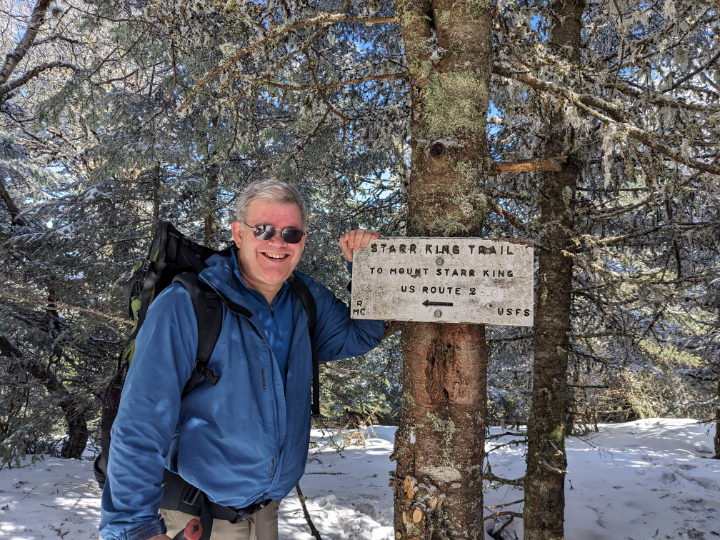WWI –Air Fights, Sacrifice & Drama
 by Robert Hanaford Smith, Sr.
by Robert Hanaford Smith, Sr.
Weirs Times Contributing Writer
There was plenty of what might be called ordinary news in the Wednesday issue of The News and Critic newspaper of March 6, 1918, including political gatherings, sports events, NH fish and game activities, the weather report, church meetings, death notices, along with information about the activities of some local citizens. Those, however, were no ordinary times because America was at war and the newspaper reflected that fact by reporting on the involvement of the people of New Hampshire in World War I.

A new type of combat was introduced to war during what was referred to as The War, the European War, The Great War, and eventually World War I – air fights between airplanes.
Most readers have probably watched representations of air fights in the movies or on TV, seen documentaries of such confrontations, and perhaps a few have even observed live air combat or participated in the same. Next year we will be observing the 100th anniversary of America’s entrance into World War I and recalling the impact it had on the inhabitants of New Hampshire. About 20,000 Granite State residents served in that war.
Lieutenant Joseph L. McLaughlin, the son of Dr. and Mrs. McLaughlin of Alton, NH, serving in the Medical Corp of the British Expeditionary force in France, observed an air fight from his camp in France which he described in a letter to his parents dated Jan. 30, 1918 and printed in Laconia’s The News and Critic. He described it as follows:
“I was watching a German plane, circling around directly overhead. Our anti aircraft guns were popping away at him. All at once, they stopped to my surprise but shortly I saw the reason. One of our Battle-planes was coming out of the clouds at him about a mile a minute, I would say. Then opened up on him with a machine gun. The Boch turned over and began fluttering down just as you have seen a leaf falling from a tree. He fell probably 500 feet. We thought he was falling right into our camp, but he was evidently an expert at the game and was only playing “possum” for suddenly he straightened out and turned his gun on our plane. Our man was evidently a master at it too, for he pointed his plane down as straight as an arrow and came like a shot, then all at once straightened it up, looped the loop, and came down on the Boch and gave him the machine gun again. They kept this up for several minutes, first one on top and then another, getting farther away. The Boch tried to get over his lines. Talk about excitement. They finally went out of sight, but someone told me later that his machine was brought down. He was game and knew his business.”
Lieutenant McLaughlin observed that the Germans would certainly not be able to win with a million of “our men” coming in. He added “I want to see them properly ‘done up’”. Among Americans serving in the medical corps in the War was Dr. Robert O. Blood who afterwards became a Governor of the State of New Hampshire.
Americans were apparently not initially enthusiastic about entering the war but soon became supportive and willing to sacrifice in support of the troops as was evident in acceptance of governmental policies and the advertisements by New Hampshire merchants that advocated saving during war-time by purchasing their products. Laconia Gas and Electric Company sold gas burning stoves claiming that four cents will bake a batch of bread, three cents will broil steak for one hour, two cents will cook on one burner for one hour, and one cent will simmer for one hour. Coal, they said, “…must be saved for next winter!”
The Royal Baking Powder Company ran an ad in a Laconia paper taking advantage of the government’s request for citizens to change their eating habits to ensure that the troops had adequate food to eat by declaring that FOOD WILL WIN THE WAR! They stated that if 22 million families used their recipe for making bread using corn, rye, barley, or oat flour instead of wheat that the entire allied army could be fed with the savings.
The effects of a country at war are far reaching into about every area of life. When George M. Cohan heard the news on April 6, 1917 that the U.S. had declared war on Germany he began to hum and that humming led to the creation of a song popular with American soldiers. The song is “Over There” which includes the words “And we won’t be back ‘til it’s over over there.” Cohan was rewarded the Congressional Medal of honor for the song.
An impact on local history is particularly interesting to me because it involves the Literary Adelphi of The New Hampton Literary and Theological Institution -now New Hampton School -which, at their Annual Public Meeting on Feb. 20, 1919, presented a play entitled “The American Flag”. The imagined site of the play is France and the plot involved the conflict in that country between the Americans and the Germans. Though he was not one of the actors in the play, my Uncle Robert Smith was one of the officers of The Literary Adelphi, being that of the Chief Marshall.
How many of our young and old have at some time been like Snoopy in the comic strips dreaming he is engaging The Red Baron in air conflict? How many of us have in some way changed our lifestyle to help support our armed forces as many changed their eating habits during World War I? How many have visited the monuments in certain towns of New Hampshire with the engraved names of those who served, some of whom died, in World War I, or watched the movies and plays, or read the books, all of which reveal the dedication, sacrifice, and courage of those brave men and women?
Robert Hanaford Smith, Sr., lives in New Hampton.




